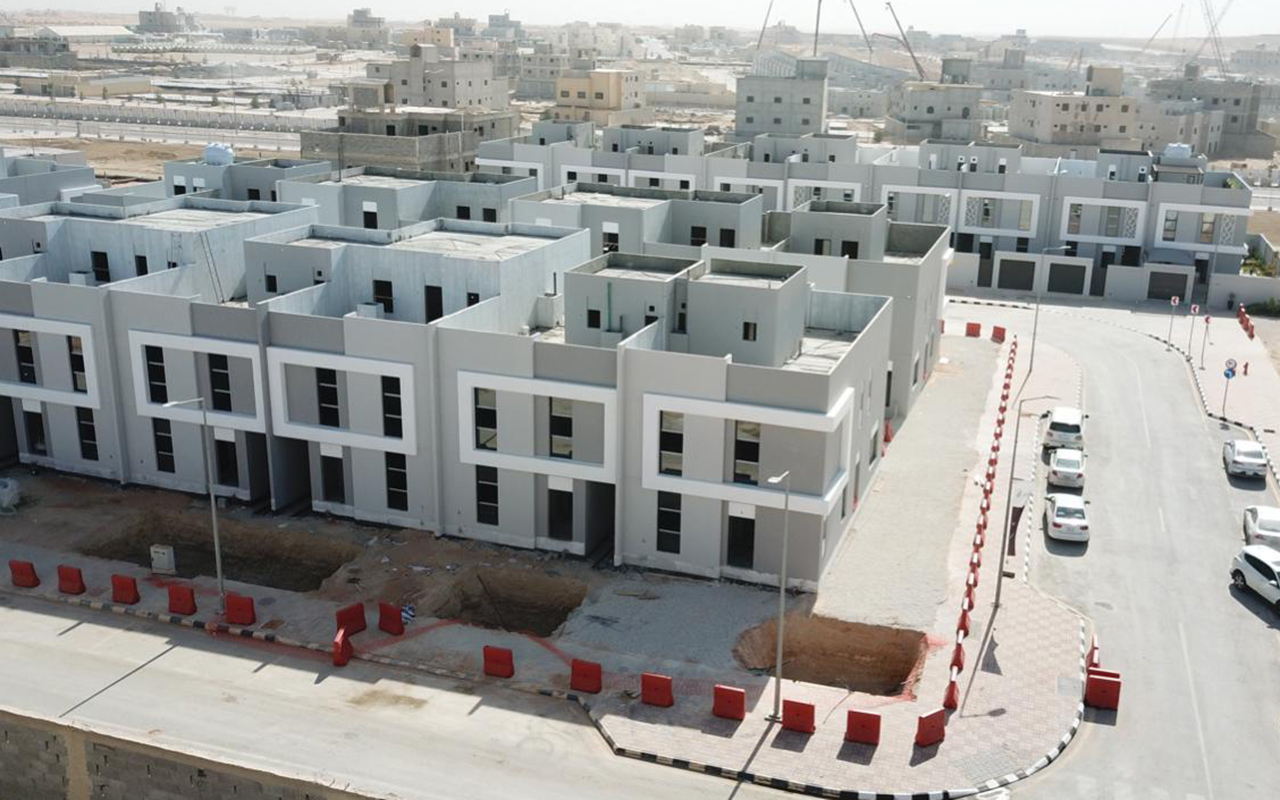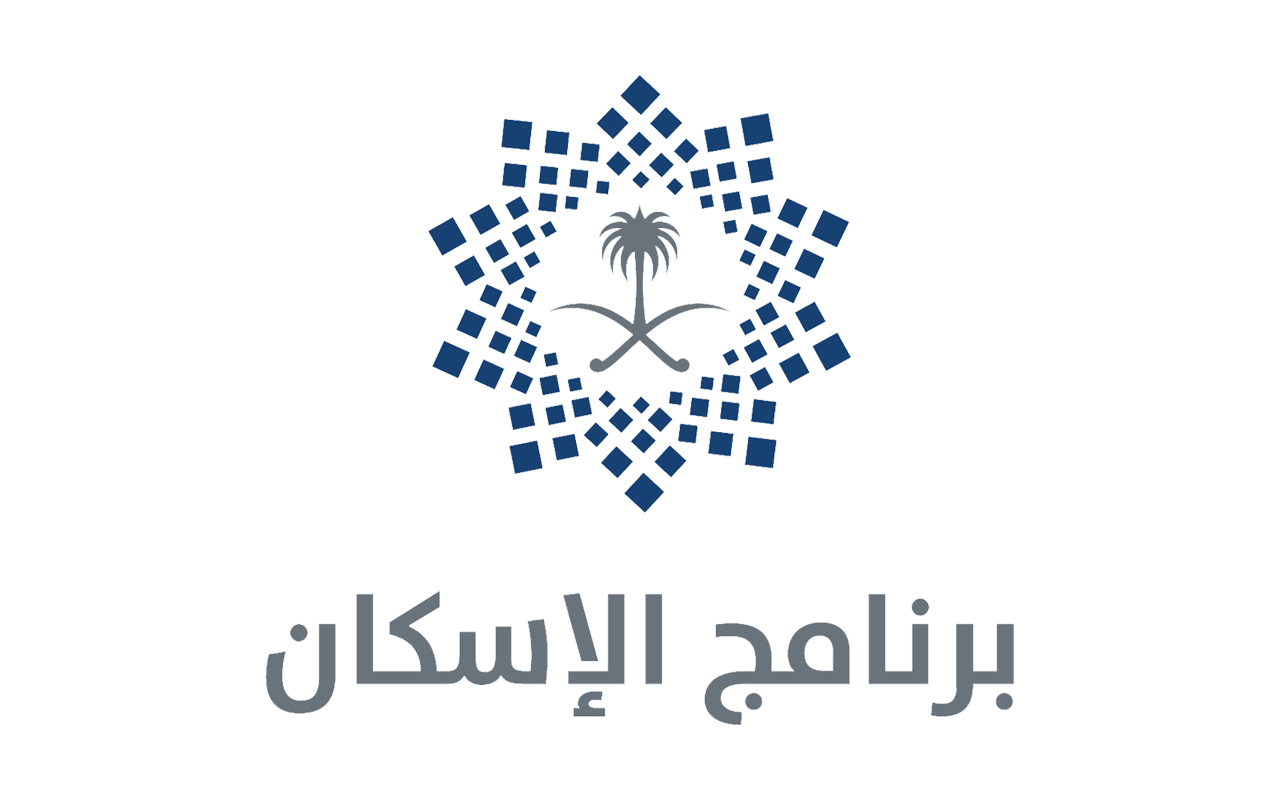Housing in Saudi Arabia
Housing in the Kingdom of Saudi Arabia refers to housing expansion since the establishment of Saudi Arabia to meet the rising housing needs of Saudi citizens. The first development plan (1970-1975) proposed the establishment of an institution to mobilize private funds and direct them toward housing projects and real estate development. This initiative included preparing designs for model residential neighborhoods to be built in selected locations, illustrating the type of housing that aligns with local needs and conditions.
Housing development plans
The state's interest in providing housing units continued through successive development plans. One of the objectives of the second five-year plan (1975-1980) was to provide suitable housing for people with limited income through government housing projects. It distributed housing on easy terms and encouraged building and construction work by other groups by granting them interest-free loans and providing subsidies. The final goal was for every Saudi family to have a home of its own.
The second development plan saw an increase in both the number and quality of housing units in Saudi Arabia. During this period, more than forty thousand housing units were constructed annually, compared to 17,500 units per year during the first plan period. Additionally, approximately 3,600 apartments were created in two urgent housing projects in Jeddah and Dammam. By the end of 1979, construction had begun on 1,152 apartments in the urgent housing project in Riyadh.
Private sector role in housing in Saudi Arabia
The private sector kept pace with housing construction efforts, delivering an impressive 150,000 permanent housing units, surpassing the third development plan's goal of 122,000 housing units. Additionally, contracting companies in the country provided over 51,000 temporary housing units for their workers. Throughout the plan period, the Real Estate Development Fund issued loans totaling over SAR31.5 billion for the construction of private residential buildings and investment projects.
Work continued, and by the end of the third development plan, 550,000 units were completed, mostly from government loans provided by the state to the private sector.
Real Estate Development Fund soft housing loans
The Real Estate Development Fund has issued soft loans totaling SAR124 billion since its inception, facilitating high-quality housing for approximately 574,800 families.
The eighth development plan projected that Saudi Arabia would require around one million housing units over the plan's five-year period:
Housing Program launch
In 2018, the Housing Program was launched to provide housing solutions that enable Saudi families to own or benefit from suitable homes according to their needs and financial capabilities. It aims to improve conditions for current and future generations by offering subsidized and appropriate financing solutions while increasing the supply of housing units at reasonable prices over a standard period. It also implements specialized programs to house the most needy groups in society, develops the legislative and regulatory environment for the housing sector, and maximizes its economic impact.
The Housing Program’s obligations include leveraging potential real estate financing opportunities by raising the total existing real estate loans to SAR502 billion, reducing the ratio between the average unit price and the average annual per capita income to five times, contributing to raising the local content level to 63 percent and increasing the percentage of homeownership among Saudi citizens to 70 percent.
Housing ownership options
The Ministry of Municipalities and Housing has provided a set of ownership options by leveraging a subsidized real estate loan of up to 100 percent. These options include the self-build option, which serves families who own land and wish to build on it themselves, and the option to purchase ready-made housing units and units under construction in partnership with real estate developers. Additionally, electronic contracts for residential lands are available for reservation through the “Sakani” website and application.
Digital services have also diversified through the “Sakani” website and application. In 2020, the model design service for the self-build option was launched, along with other services such as the “real estate consultant” and the “bearing the value-added tax on the first residence” initiative. To organize and facilitate a balanced and sustainable housing environment, the electronic Ejar network, the “Mullak” program, and the “Sorting of Real Estate Units” program were launched. Among the initiatives was the sustainable construction program to examine the quality of housing under construction and issue reports for ready housing.
The “Sakani” program, which is one of the outcomes of these policies, has contributed to providing various housing options and financing solutions supported by profits of up to 100 percent. These options are available in all regions of Saudi Arabia and are suitable for all categories, which has helped in the growth of the number of real estate loans from Saudi banks and financing institutions.

Housing initiatives and programs in Saudi Arabia
Housing initiatives also include the 'White Lands' program, which began in four major cities in Saudi Arabia and contributed to the development of a large number of designated lands. Additionally, the 'Building Technologies Stimulus' program reduced the period required for real estate development for homes, maintained high quality, and increased the availability of housing units. Moreover, the development housing program, in partnership with 350 civil society organizations, aims to provide housing units for the most needy families. These programs have helped increase Saudi ownership rates and decrease the percentage of renting families to 35 percent as of 2019.
Among the housing initiatives contributing to raising housing rates is the Jood Eskan platform, an initiative of the National Developmental Housing Foundation. In 2023, the platform garnered over five million shareholders who submitted bids and worked diligently to support families most in need of housing. The number of beneficiaries surpassed 36,000, and total contributions exceeded SAR2 billion.
According to statistics from the Housing Program in 2023, around 96,000 families from among the housing support beneficiaries benefited through the program’s contribution to covering housing costs, in addition to serving more than 20,000 families through homeownership pathways under the Developmental Housing Initiative. Additionally, the number of Saudi families owning a housing unit reached 65.4 percent by the end of 2024, raising 18.36 percent compared to 2016, and reflecting the program's commitment to supporting beneficiaries in achieving the goals of raising residential ownership for Saudi families to 70 percent by 2030.
The housing programs and initiatives yielded numerous gains, achieving ambitious objectives. The total amount deposited into Sakani beneficiaries' accounts surpassed SAR50.2 billion from June 2017 to July 2023.
The work and efforts to provide housing units continued, and the subsidized mortgage program contributed to enabling 35,000 beneficiaries to own property. Additionally, the guarantees program benefited more than 26,000 beneficiaries by the end of 2021. The Real Estate Fund achieved significant progress through housing support programs, empowering over 660,000 beneficiaries from June 2017 until the end of the first half of 2022. Furthermore, it deposited more than SAR40 billion in monthly support during the same period for "Sakani" beneficiaries.
Another significant shift in the housing sector occurred with the issuance of a Royal Order in 2021, annexing the Ministry of Housing to the Ministry of Municipal and Rural Affairs. Consequently, the ministry's name was changed to the "Ministry of Municipal and Rural Affairs and Housing." Then, in 2024, it was changed by a Royal Order to the "Ministry of Municipalities and Housing."
Housing programs and initiatives have expanded to over ten programs and initiatives covering residential services for citizens, including: cooperative housing, Sakani, Mullak, Itmam, Ejar, Idle Lands, Developmental Housing, Sustainable Building, Saudi Real Estate Institute, Modern Building Initiative, bearing the value-added tax on the first residence, subdivision services, Wafi. The number of Sakani program projects in all regions has reached 137, encompassing a total of 155,077 housing units.
Establishment of the Saudi Real Estate Refinance Company
In line with housing construction efforts, the Saudi Real Estate Refinancing Company was established in 2017. It seeks to enable lenders to provide real estate financing solutions, contributing to increasing citizens' homeownership rates.
The application of modern technologies in the housing sector in Saudi Arabia witnessed a significant leap with the announcement of the Housing and National Industrial Development and Logistics Services programs in 2018. This included the successful construction of the first house using three-dimensional printing technology, which is considered one of the latest advancements in fourth-generation construction technologies.
Establishment of the National Housing Company
In an effort to strengthen the housing system and achieve housing goals in Saudi Arabia, the National Housing Company (NHC) was established in 2016 to serve as the investment arm for the initiatives and programs of the Ministry of Municipalities and Housing in the real estate, residential, and commercial sectors. The company was transferred to state ownership in May 2020, marking a new phase in its journey as it became an effective enabler of solutions for the Saudi real estate market. On November 11, 2024, the company launched its new identity with the name "NHC."
The company is working on implementing a strategy to become an enabler of the real estate supply system by empowering the private sector to develop the real estate market and improve the professionalism of the services provided. This strategy aims to provide broader horizons for the company to enhance the sustainability of its business and the work of the real estate system. The company has several subsidiaries, most notably the National Housing Services Company, National Asset Management Company, and National Finance Services Company.
The National Housing Company achieved significant milestones, delivering the first homes to 25,000 families by the end of May 2023 in eleven cities including Makkah Al-Mukarramah, Al-Madinah Al-Munawwarah, Riyadh, Jeddah, Dammam, Al-Khobar, Al-Ahsa, Al-Qatif, Khamis Mushayt, Taif, and Yanbu, benefitting more than 125 thousand people.
